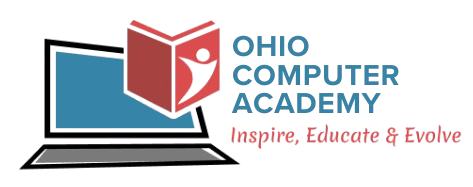The demand for skills in Agile methodologies, particularly within the context of business analysis, is rapidly increasing as organizations seek more efficient and collaborative approaches to project management. As businesses recognize the importance of adapting to changing market conditions and customer needs, there is a growing need for skilled Agile Business Analysts who can effectively gather requirements, prioritize backlogs, and facilitate communication between stakeholders and development teams. This trend highlights the value of completing the “Agile for Business Analysts” course, as graduates will be equipped with the essential knowledge and skills to meet these demands, making them highly sought after in the job market. Individuals who complete this course will find themselves in a strong position to pursue diverse career opportunities in organizations that prioritize Agile practices.
Welcome to “Agile for Business Analysts,” a comprehensive training program designed for individuals aiming to enhance their skills in Agile methodologies and become effective contributors in Agile environments. In today’s dynamic software development landscape, Agile practices are increasingly adopted for their ability to enhance collaboration, improve product quality, and accelerate project delivery.
This course provides participants with a deep understanding of Agile principles, focusing specifically on the unique role of the Business Analyst within Agile teams. You will explore essential Agile frameworks, including Scrum, and learn how to write effective user stories, prioritize the Product Backlog, and engage with stakeholders to gather requirements.
Led by experienced instructors who bring real-world insights and expertise, this training emphasizes a collaborative learning environment where you can ask questions, share experiences, and apply your knowledge in practical scenarios.
By the end of this course, you will be well-equipped to take on the responsibilities of an Agile Business Analyst, positioning yourself as a valuable asset in any Agile project setting. Join us on this transformative journey to master Agile practices and advance your career in the ever-evolving field of software development!
Kickstart your career in Agile Business Analysis by mastering essential skills to effectively engage in Agile practices, making you job-ready in 30 hours or less.
Highlights
Upgrade your career with top notch training
- Enhance Your Skills: Gain invaluable training that prepares you for success.
- Instructor-Led Training: Engage in interactive sessions that include hands-on exercises for practical experience.
- Flexible Online Format: Participate in the course from the comfort of your home or office.
- Accessible Learning Platform: Access course content on any device through our Learning Management System (LMS).
- Flexible Schedule: Enjoy a schedule that accommodates your personal and professional commitments.
- Job Assistance: Benefit from comprehensive support, including resume preparation and mock interviews to help you secure a position in the industry.
Key Learnings
- Gain a solid grasp of Agile methodologies, including the Agile Manifesto and key values that drive Agile project success.
- Understand the Scrum framework and other Agile methodologies, including their roles, artifacts, and events that are essential for effective collaboration.
- Learn how to craft clear and actionable user stories and define acceptance criteria to ensure alignment between business needs and development efforts.
- Acquire skills to create and prioritize the Product Backlog, ensuring that it reflects stakeholder needs and project goals while maximizing value delivery.
- Explore different planning and estimation methods, including how to engage teams in estimating user stories and planning iterations effectively.
- Develop practical skills for actively participating in and facilitating key Agile ceremonies, fostering collaboration and accountability within teams.
- Get familiar with popular Agile project management tools (such as JIRA and Trello) to effectively manage workflows, track progress, and enhance team communication.
- Learn about important Agile metrics, such as velocity and burndown charts, and how to use these metrics for monitoring project performance and driving improvements.
- Master techniques for managing relationships with stakeholders, effective communication practices, and strategies for adapting to changes during Agile projects.
- Engage with real-life case studies that showcase successful Agile implementations, allowing you to apply principles and practices to practical scenarios.
- Equip yourself with the knowledge and skills necessary to pursue roles such as Agile Business Analyst, Scrum Team Member, or Agile Consultant, enhancing your marketability in the job landscape.
Pre-requisites
- Familiarity with fundamental project management principles and methodologies
- Familiarity with the software development lifecycle (SDLC) and common development practices.
- Basic knowledge of business analysis processes, including requirements gathering and stakeholder engagement, will be beneficial.
Job roles and career paths
This training will equip you for the following job roles and career paths:
- Agile Business Analyst
- Business Analyst in Agile Environments
- Certified Scrum Master (CSM)
- Agile Project Manager
- Agile Coach
- Scrum Master
- Product Owner
- Project Manager
Certification
After the completion of the course and the exam, you will be awarded the course completion certificate.
Topics of Course
-
Overview of Agile principles and values
-
Understanding the Agile Manifesto and its implications for project management
-
Key differences between Agile and traditional project management approaches
-
Responsibilities and expectations of Business Analysts in Agile environments
-
How the role of a Business Analyst evolves in Agile projects
-
Collaborating effectively with Scrum Masters, Product Owners, and Development Teams
-
Overview of popular Agile frameworks (Scrum, Kanban, Lean)
-
Understanding the specific practices and terminologies within each framework
-
Determining the appropriate framework for project needs
-
Writing effective user stories and acceptance criteria
-
Techniques for gathering and refining requirements in Agile teams
-
Prioritizing user stories using methods
-
Agile project planning methodologies and tools
-
Techniques for estimating user stories
-
Creating and managing a product backlog
-
Understanding key Agile ceremonies: Sprint Planning, Daily Standups, Sprint Review, and Sprint Retrospective
-
Techniques for effectively participating in and facilitating these ceremonies
-
Gathering feedback and addressing changes during the Agile process
-
Overview of popular Agile tools (e.g., JIRA, Trello, Confluence)
-
How to leverage these tools for backlog management and collaboration
-
Tracking progress and reporting within Agile systems
-
Key performance indicators (KPIs) in Agile projects
Your Instructor
 Follow Me:
Follow Me:


 Follow Me:
Follow Me:
 Free
Free
 Free
Free
 Free
Free

